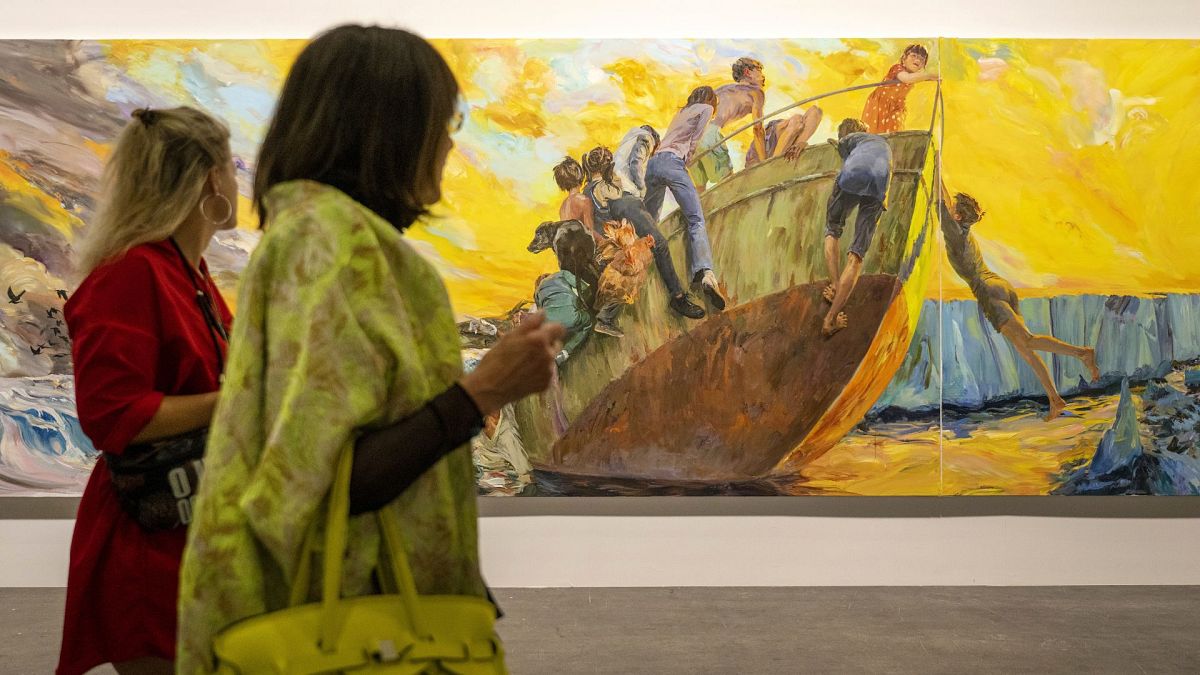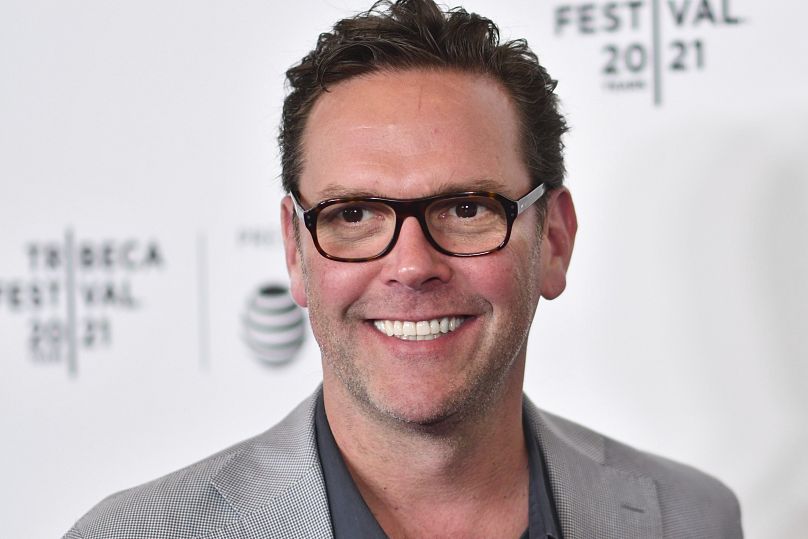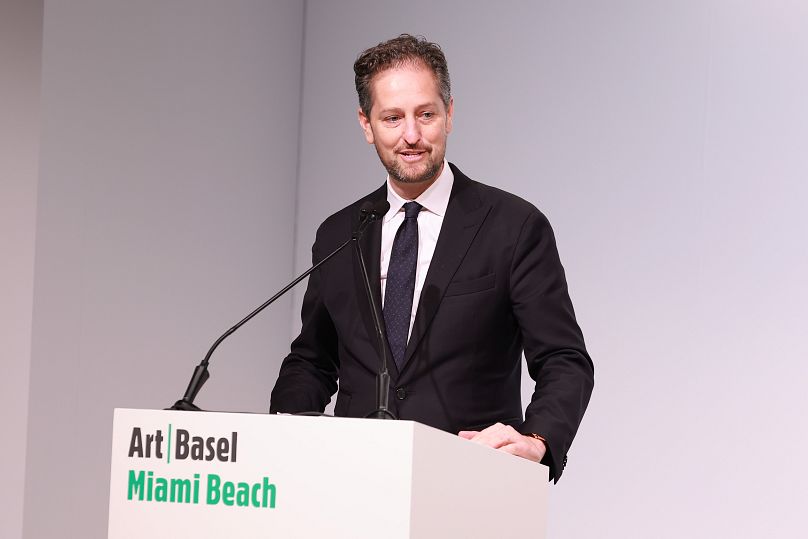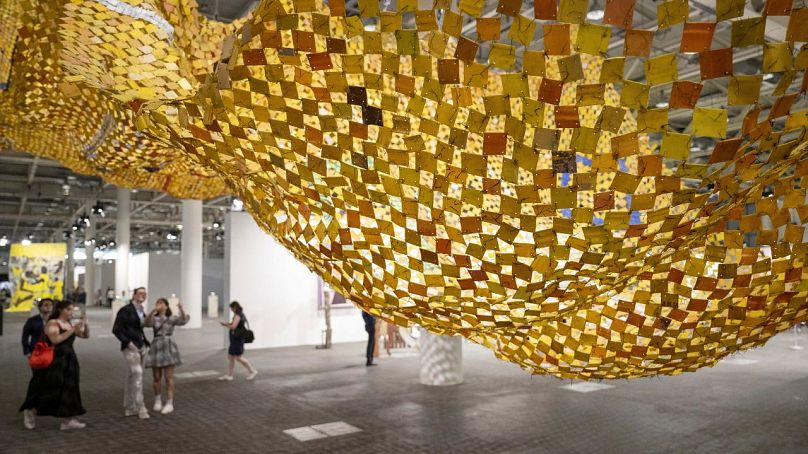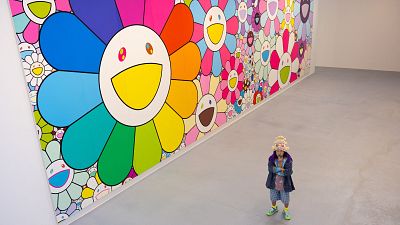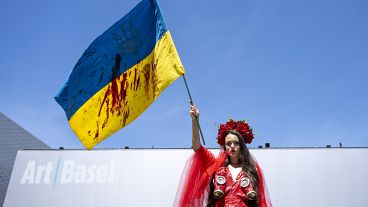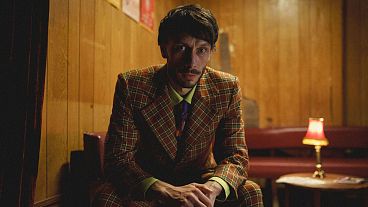Art Basel, which opens today, is one of the world's most important art buyer's market. Millions of euros are expected to change hands as the fair also takes on new challenges and opportunities presented by AI and digital art.
The decaying arches of a mysterious palace, a life-size aluminium boat titled ‘Horizons’ and a yellow net made of a container are among the monumental pieces of art which are displayed in a unique section called ‘Unlimited’ and spread across 16,000 square metres at Art Basel.
Besides the enormous showcases, contemporary works as well as some classics are also on display.
The items are priced from the thousands to the tens of millions and, traditionally, dealers have kept their most desirable pieces for the Swiss flagship show, across 284 booths featuring galleries from 36 countries.
“The audience is predominantly European, but extremely global as well,” says newly appointed CEO of Art Basel Noah Horowitz, adding, “We've seen a lot of collectors from Asia, from the US, from Canada, from South America. It's a truly global forum and a truly global coming together”.
The wind of change in Art Basel
Art Basel was founded in 1970 by the Swiss city’s gallerists and today it is held across the four seasons of the year in Basel as well as in Hong Kong, Paris and Miami Beach.
The for-profit, privately owned and managed international art fair has grown to be the place to look for the best in modern and contemporary art from the world’s top dealers to mega rich art collectors and appreciators.
That’s a model that’s continuing thanks, in part, to business mogul James Murdoch, who has been a top investor in the glitzy art fair’s organiser’s parent company, MCH, since 2020.
In order to keep the exclusive ranking in the world of art, the fair is significantly tweaking its business model, just like the surprise appointment of Art Basel’s new chief executive, Noah Horowitz last October.
Replacing Marc Spiegler, who oversaw the growth of the art show as a whole over 15 years, Horowitz has spoken out about the apparent need to be open minded over the “culture” of the fair and change in line with the increasing importance of branding as well as experience in terms of buyers’ needs.
"We see a world of culture that's shaping and changing at a higher speed, in more dynamic ways than ever,” said the CEO at the opening of the fair in Basel. “There are younger people coming to the table. There are cultural practitioners that might previously have shown in galleries that are creating their own digital platforms and different types of businesses. And as we look ahead, we want to ensure that as a business, Art Basel is responsive to this and is continuing to grow and evolve."
Murdoch is well aware of the wind of change, discussing the need to define Art Basel as one of a few brands “bigger than their business” during a rare podcast interview with Artnet.
In conversation on ‘The Art Angle’, Murdoch spoke of his admiration for Formula 1’s business model’s ability to travel around the world, convening “a broader community”, adding that Art Basel needed to stay as a recognisable top brand in the industry, especially in the midst of economic uncertainty.
Under Murdoch's leadership, Swiss-based MCH announced that it was ditching its Masterpiece fair in London at the end of this month, citing the reasons as rising costs and a decline in international exhibitors.
In the art world, many are fearing a market correction and, as a result, among Art Basel chiefs, consolidation rather than expansion seems to be the priority.
MCH have recently made more investments in East Asia, a prime growth region for high end art, with a focus on boutique events in Singapore and Tokyo, as trading conditions suffer in Hong Kong, traditionally the home of the west’s largest auction houses on the continent.
Art Basel’s Hong Kong edition in May was a great success though and will remain in place for the near future at least - and, as Horowitz says, the four fairs continue to be his top priority. His team’s aim is to transform the events into more interactive experiences, using ‘brand activation’ and branching out into fields including film, music, design and fashion.
Art Basel runs from 15-18 June.
Watch the video above to see more about the artworks.
